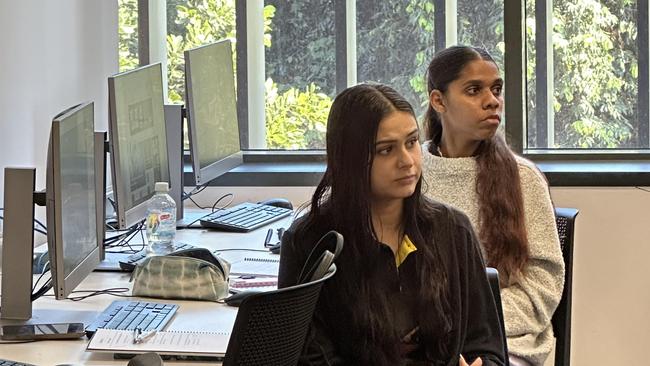NTG’s Aboriginal Employment Program to provide public sector jobs
A new pilot program providing Aboriginal Territorians a pathway to public sector employment is going from strength to strength. Here’s how it works.

Northern Territory
Don't miss out on the headlines from Northern Territory. Followed categories will be added to My News.
A program providing Aboriginal Territorians a pathway to employment is going from strength to strength, with 17 participants – all of them women – about to start on-the-job training.
The latest cohort of the Aboriginal Employment Program will next week start paid placements in a range of Territory government departments.
It comes after five weeks of training at the Charles Darwin University’s Waterfront campus.
Corporate and Digital Development department chief executive Chris Hosking said while the program had run for 14 years, this was the first cohort to have on-the-job training in the public sector.
“In this revamped program, we’re employing the Aboriginal trainees from day one so they’re on the books as a government employee from the day they start,” he said.
“We put all the necessary supports in place to ensure they succeed when they get into their placement.

“The AEP traineeship essentially equips them with those basic employment skills, gets them job ready so that once they’re placed in a government department, they’re competitive for vacancies within the agency and can secure those positions based on their own merit.
“We’re piloting this new approach, here in Darwin, and certainly looking to move our focus out into the regions to strengthen Aboriginal participation in regional jobs.”
Mr Hoskings said the competitive program, which had more than 100 applicants for the latest round, placed students in administration roles across health, Territory Families and corporate and digital development.
Public Employment Minister Paul Kirby said Saltbush Social Enterprises had been providing the participants with mentoring and support.
“It’s great to talk to some of the staff and find out there are kids that have come straight out of school, there’s also people that are in their 60s,” he said.
“We really look forward to them completing that underpinning training, working with the department … to hopefully have very long fulfilling careers within the public sector.”




